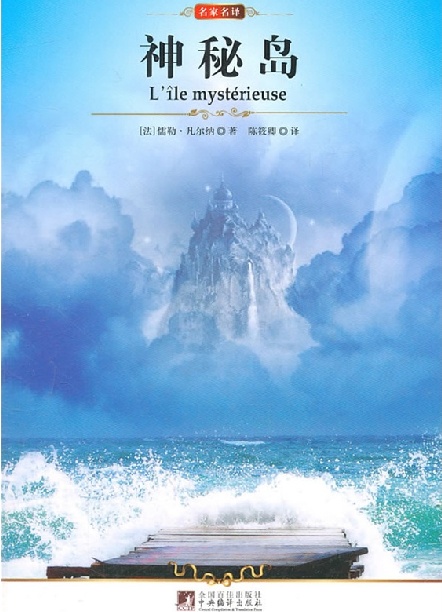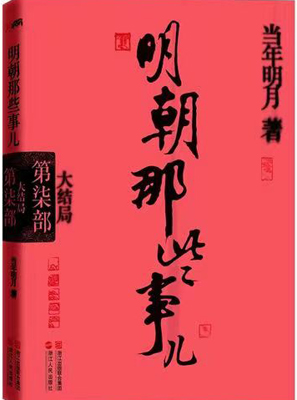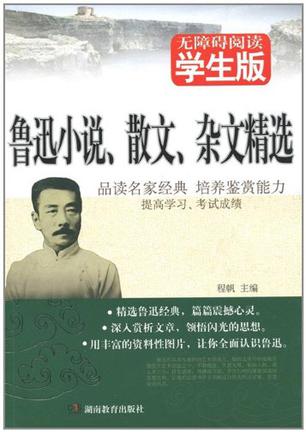Jean Valjean's purse was of no use to M. Mabeuf. M. Mabeuf, in his venerable, infantile austerity, had not accepted the gift of the stars; he had not admitted that a star could coin itself into louis d'or. He had not divined that what had fallen from heaven had come from Gavroche. He had taken the purse to the police commissioner of the quarter, as a lost article placed by the finder at the disposal of claimants. The purse was actually lost. It is unnecessary to say that no one claimed it, and that it did not succor M. Mabeuf.
Moreover, M. Mabeuf had continued his downward course.
His experiments on indigo had been no more successful in the Jardin des Plantes than in his garden at Austerlitz. The year before he had owed his housekeeper's wages; now, as we have seen, he owed three quarters of his rent. The pawnshop had sold the plates of his Flora after the expiration of thirteen months. Some coppersmith had made stewpans of them. His copper plates gone, and being unable to complete even the incomplete copies of his Flora which were in his possession, he had disposed of the text, at a miserable price, as waste paper, to a second-hand bookseller. Nothing now remained to him of his life's work. He set to work to eat up the money for these copies. When he saw that this wretched resource was becoming exhausted, he gave up his garden and allowed it to run to waste. Before this, a long time before, he had given up his two eggs and the morsel of beef which he ate from time to time. He dined on bread and potatoes. He had sold the last of his furniture, then all duplicates of his bedding,his clothing and his blankets, then his herbariums and prints; but he still retained his most precious books, many of which were of the greatest rarity, among others, Les Quadrins Historiques de la Bible, edition of 1560; La Concordance des Bibles, by Pierre de Besse; Les Marguerites de la Marguerite, of Jean de La Haye, with a dedication to the Queen of Navarre; the book de la Charge et Dignite de l'Ambassadeur, by the Sieur de Villiers Hotman; a Florilegium Rabbinicum of 1644; a Tibullus of 1567, with this magnificent inscription: Venetiis,in aedibus Manutianis; and lastly, a Diogenes Laertius, printed at Lyons in 1644, which contained the famous variant of the manuscript 411, thirteenth century, of the Vatican, and those of the two manuscripts of Venice, 393 and 394, consulted with such fruitful results by Henri Estienne, and all the passages in Doric dialect which are only found in the celebrated manuscript of the twelfth century belonging to the Naples Library. M. Mabeuf never had any fire in his chamber, and went to bed at sundown, in order not to consume any candles. It seemed as though he had no longer any neighbors: people avoided him when he went out; he perceived the fact. The wretchedness of a child interests a mother, the wretchedness of a young man interests a young girl,the wretchedness of an old man interests no one. It is, of all distresses, the coldest. Still, Father Mabeuf had not entirely lost his childlike serenity. His eyes acquired some vivacity when they rested on his books, and he smiled when he gazed at the Diogenes Laertius, which was a unique copy. His bookcase with glass doors was the only piece of furniture which he had kept beyond what was strictly indispensable.
One day, Mother Plutarque said to him:--
"I have no money to buy any dinner."
What she called dinner was a loaf of bread and four or five potatoes.
"On credit?" suggested M. Mabeuf.
"You know well that people refuse me."
M. Mabeuf opened his bookcase, took a long look at all his books, one after another, as a father obliged to decimate his children would gaze upon them before making a choice, then seized one hastily, put it in under his arm and went out. He returned two hours later, without anything under his arm, laid thirty sous on the table, and said:--
"You will get something for dinner."
From that moment forth, Mother Plutarque saw a sombre veil, which was never more lifted, descend over the old man's candid face.
On the following day, on the day after, and on the day after that, it had to be done again.
M. Mabeuf went out with a book and returned with a coin. As the second-hand dealers perceived that he was forced to sell, they purchased of him for twenty sous that for which he had paid twenty francs, sometimes at those very shops. Volume by volume, the whole library went the same road. He said at times: "But I am eighty;" as though he cherished some secret hope that he should arrive at the end of his days before reaching the end of his books. His melancholy increased. Once, however, he had a pleasure. He had gone out with a Robert Estienne, which he had sold for thirty-five sous under the Quai Malaquais, and he returned with an Aldus which he had bought for forty sous in the Rue des Gres.--"I owe five sous," he said, beaming on Mother Plutarque. That day he had no dinner.
He belonged to the Horticultural Society. His destitution became known there. The president of the society came to see him, promised to speak to the Minister of Agriculture and Commerce about him, and did so.--"Why, what!" exclaimed the Minister, "I should think so! An old savant! A botanist! An inoffensive man! Something must be done for him!" On the following day, M. Mabeuf received an invitation to dine with the Minister. Trembling with joy, he showed the letter to Mother Plutarque. "We are saved!" said he. On the day appointed, he went to the Minister's house. He perceived that his ragged cravat, his long, square coat, and his waxed shoes astonished the ushers. No one spoke to him, not even the Minister. About ten o'clock in the evening, while he was still waiting for a word, he heard the Minister's wife, a beautiful woman in a low-necked gown whom he had not ventured to approach, inquire: "Who is that old gentleman?" He returned home on foot at midnight, in a driving rain-storm.He had sold an Elzevir to pay for a carriage in which to go thither.
He had acquired the habit of reading a few pages in his Diogenes Laertius every night, before he went to bed. He knew enough Greek to enjoy the peculiarities of the text which he owned. He had now no other enjoyment. Several weeks passed. All at once, Mother Plutarque fell ill. There is one thing sadder than having no money with which to buy bread at the baker's and that is having no money to purchase drugs at the apothecary's. One evening,the doctor had ordered a very expensive potion. And the malady was growing worse; a nurse was required. M. Mabeuf opened his bookcase; there was nothing there. The last volume had taken its departure. All that was left to him was Diogenes Laertius. He put this unique copy under his arm, and went out. It was the 4th of June, 1832; he went to the Porte Saint-Jacques, to Royal's successor, and returned with one hundred francs. He laid the pile of five-franc pieces on the old serving-woman's nightstand, and returned to his chamber without saying a word.
On the following morning, at dawn, he seated himself on the overturned post in his garden, and he could be seen over the top of the hedge, sitting the whole morning motionless, with drooping head, his eyes vaguely fixed on the withered flower-beds. It rained at intervals; the old man did not seem to perceive the fact.
In the afternoon, extraordinary noises broke out in Paris. They resembled shots and the clamors of a multitude.
Father Mabeuf raised his head. He saw a gardener passing, and inquired:--
"What is it?"
The gardener, spade on back, replied in the most unconcerned tone:--
"It is the riots."
"What riots?"
"Yes, they are fighting."
"Why are they fighting?"
"Ah, good Heavens!" ejaculated the gardener.
"In what direction?" went on M. Mabeuf.
"In the neighborhood of the Arsenal."
Father Mabeuf went to his room, took his hat, mechanically sought for a book to place under his arm, found none, said: "Ah! Truly!" and went off with a bewildered air.
冉阿让的钱包对马白夫先生没起一点作用。可敬的马白夫先生,素来品行端正而饶有稚气,他绝不接受那份来自星星的礼物,他绝不同意星星能自己铸造金路易。他更不会想到从天上掉下来的东西来自伽弗洛什。他把钱包当作拾得的失物,交给了区上的警察哨所,让失主认领。这钱包便真成了件失物。不用说,谁也不曾去认领,它对马白夫先生也一点没有帮助。
在这期间,马白夫先生继续走着下坡路。
靛青的实验工作无论在植物园或在他那奥斯特里茨的园子里都没成功。上一年,他已付不出女管家的工资,现在,他又欠了几个季度的房租未付。那当铺,过了十三个月,便把他那套《植物图说》的铜版全卖了,几个铜匠拿去做了些平底锅。他原有若干册不成套的《植物图说》,现在铜版没有了,也就无法补印,便连那些插图和散页也当作残缺的废纸贱价卖给了一个旧书贩子。他毕生的著作到此已荡然无存。他专靠卖那几部存书度日。当他见到那一点微薄的财源也日渐枯竭时,他便任他的园子荒芜,不再照顾。从前,他也偶然吃上两个鸡蛋和一块牛肉,但是长期以来,连这也放弃了。他只吃一块面包和几个土豆。他把最后的几件木器也卖了,随后,凡属多余的铺盖、衣服、毛毯等物,以及植物标本和木刻图版,也全卖了;但是他还有些极珍贵的藏书,其中有些极为稀有的版本,如一五六○年出版的《历史上的圣经四行诗》,皮埃尔·德·贝斯写的《圣经编年史》,让·德·拉埃写的《漂亮的玛格丽特》,书中印有献给纳瓦尔王后的题词,贵人维里埃-荷特曼写的《使臣的职守和尊严》,一本一六四四年的《拉宾尼诗话》,一本一五六七年迪布尔的作品,上面印有这一卓越的题铭:“威尼斯,于曼奴香府”,还有一本一六四四年里昂印的第欧根尼·拉尔修①的作品,在这版本里,有十三世纪梵蒂冈第四一一号手抄本的著名异文以及威尼斯第三九三号和三九四号两种手抄本的著名异文,这些都是经亨利·埃斯蒂安②校阅并取得巨大成绩的,书中并有多利安方言的所有章节,这是只有那不勒斯图书馆十二世纪的驰名手抄本里才有的。马白夫先生的卧室里从来不生火,为了不点蜡烛,他不到天黑便上床睡觉。仿佛他已没有邻居,当他出门时,人家都及时避开,他也察觉到了。孩子的穷困能引起一个做母亲的妇女的同情,青年人的穷困能引起一个少女的同情,老年人的穷困得不到任何人的同情。这是一切穷困中最冷酷无情的穷困。可是马白夫公公没有全部丧失他那种富于孩子气的宁静。当他注视他那些书籍时,他的眼睛总是神采奕奕的,在端详那本第欧根尼·拉尔修的作品时,他总面带微笑。他的一个玻璃书柜是他保留下来的唯一不属于那些非有不可的家具之列的。
①第欧根尼·拉尔修(Diogène,三世纪),古希腊哲学家,古代哲学家丛书的编纂者。
②亨利·埃斯蒂安(Henri Estienne,1531?598),法国文字学家,以研究希腊古代文字和法国语言著称。
一天,普卢塔克妈妈对他说:
“我没有东西做晚餐了。”
她所说的晚餐,是一块面包和四五个土豆。
“赊欠呢?”马白夫先生说。
“您知道人家都不肯赊欠了。”
马白夫先生打开他的书柜,好象一个做父亲的,在被迫交出他的儿子去让人家砍头以前,不知选谁好,对着他的那些书,他望来望去,久久不决,继又狠心抓出一本,夹在胳膊下面,出去了。两个钟头过后回来时,胳膊下已没有东西,他把三十个苏放在桌上说:
“您拿去做点吃的吧。”
从这时起,普卢塔克妈妈看见一道阴暗的面纱落在那憨厚老人的脸上,不再撩起了。
第二天,第三天,每天,都得重演一次。马白夫先生带一本书出去,带一个银币回来。那些旧书贩子看见他非卖书不可了,只出二十个苏收买他当初花了二十法郎买来的书。有时,向他收购的书商也就是当日卖书给他的同一个人。一本接着一本,整套藏书就这样不见了。他有时对自己说:“不过我已年过八十了。”这好象是想说,在他的书卖完之前,他不知还会有什么希望。他的忧伤,不断加剧。不过有一次他却又特别高兴。他带着一本罗贝尔·埃斯蒂安①印的书去马拉盖河沿,卖了三十五个苏,却又在格雷街花四十个苏买了一本阿尔德②回家。“我还欠人家五个苏。”他兴致勃勃地告诉普卢塔克妈妈。
①罗贝尔·埃斯蒂安(Robert Estienne,1503?559),巴黎印书商,他出版的希伯来、希腊、拉丁文古籍,获得学术界广泛的信任。他是前面提到的亨利·埃斯蒂安的父亲。
②十六世纪威尼斯印书商阿尔德(Alde)印的书。
这一天,他一点东西没有吃。
他是园艺学会的会员。学会中人知道他贫苦。会长去看他,向他表示要把他的情况告诉农商大臣,并且也这样做了。
“唉,怎么搞的!”大臣感慨地说,“当然啦!一位老科学家!一位植物学家!一个与人无争的老好人!应当替他想个办法!”第二天,马白夫先生收到一张请帖,邀他去大臣家吃饭。他高兴得发抖,把帖子拿给普卢塔克妈妈看。“我们得救了!”他说。到了约定日期,他去到大臣家里。他发现他那条破布筋似的领带,那身太肥大的老式方格礼服,用鸡蛋清擦过的皮鞋,叫看门人见了好不惊讶。没有一个人和他谈话,连大臣也不曾和他谈话。晚上快到十点了,他还在等一句话,忽然听到大臣夫人,一个袒胸露背,使他不敢接近的美人问道:“那位老先生是个什么人?”他走路回家,到家已是午夜,正下着大雨。他是卖掉一本埃尔泽维尔①去付马车费赴宴的。
①埃尔泽维尔(Elzévir),十六、十七世纪荷兰的印书商,所印书籍以字体秀丽著称。
每晚上床以前,他总要拿出他的第欧根尼·拉尔修的作品来读上几页,这已成了他的习惯。他对希腊文有相当研究,因此能品味这本藏书的特点。现在他已没有其他的享受。这样又过了几个星期。忽然一天,普卢塔克妈妈病了。有比没有钱去面包铺买面包更恼人的事,那便是没有钱去药铺买药。有一天傍晚,医生开了一剂相当贵的药。并且病情也严重起来了,非有人看护不可。马白夫先生打开了他的书柜,里面全空了。最后一本书也不在了。剩下的只是那本第欧根尼·拉尔修的作品。
他把这孤本夹在胳膊下出去了,那正是一八三二年六月四日,他到圣雅克门找鲁瓦约尔书店的继承人,带了一百法郎回来了。他把那一摞五法郎的银币放在老妇人的床头柜上,没说一句话便回到他屋子里去了。
第二天,天刚明,他坐在园子里那块倒在地上的石碑上,从篱笆上人们可以看见他在那里整整坐了一个早晨,纹丝不动,两眼矇眬地望着那枯萎了的花畦。有时下着雨,老人似乎全不觉得。到了下午,巴黎各处都发出一些不寻常的声响。好象是枪声和人群的喧扰声。
马白夫公公抬起了头。他看见一个花匠走过,便问道:
“这是什么?”
花匠背着一把铁铲,以极平常的口吻回答说:
“暴动了。”
“怎么!暴动?”
“对。打起来了。”
“为什么要打?”
“啊!天知道!”花匠说。
“在哪一边?”马白夫又问。
“靠兵工厂那边。”
马白夫公公走进屋子,拿起帽子,机械地要找一本书夹在胳膊下面,找不到,便说道:“啊!对!”就恓恓惶惶地走出去了。





